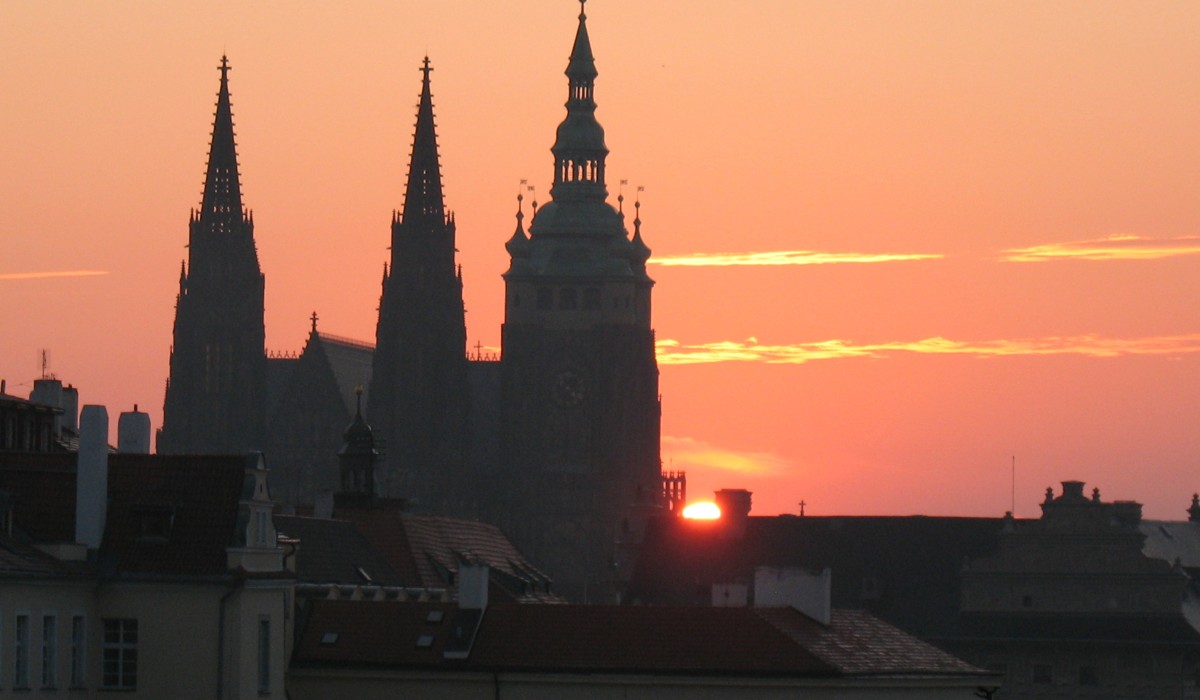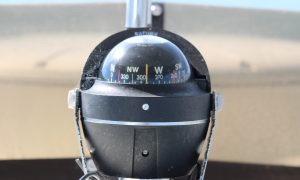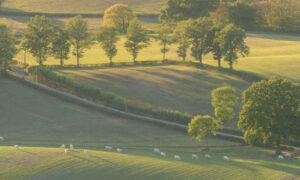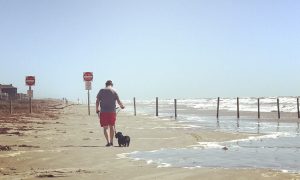
Kate Dernocoeur, guest blogger
My first arrival in Prague was by train, a lucky happenstance. In that way, this bowl of a city was delivered to me from the rim of the flat plains surrounding it like Brigadoon appearing from the mists. Working as a teaching assistant for Western Michigan University’s Prague Summer Program allowed me the chance to explore this magnificent city for two full months. I lived there all of July both in 2008 and 2010, when I arranged to arrive again by train. My explorations were mostly on foot but often by tram, and took me well beyond what a tourist can absorb in an average stay of 2.4 days.
Nothing can completely gloss over Prague’s dark past, which was actually not so long ago. Scratch the surface of 21st century Prague and there is still a certain heaviness, especially if you look carefully at the faces of people who lived in those days. But the contemporary vibrancy of Prague is real: the music and arts scene, the beers and liquors, other delights. And the visual setting is sublime. I reveled in the endlessly variable cobblestone designs, artful doorhandles, statues old and new, other artful embellishments.
The 35-minute walk from my housing uphill from Prague Castle to my Charles University building just across the river was among my most treasured time. At 8:00 A.M., before the heat of the day, I exited my plain Communist-era dorm and walked along cobblestones under arched passageways to the upper gate of Prague Castle. I was often alone as I passed diagonally across two courtyards to a passageway that slowly revealed mighty St. Vitus Cathedral, its courtyard still muted at that hour, awaiting the daily hordes yet to arrive. Around the corner was my favorite Prague statue: a quiet fountain of a kindly-looking St. George bending forward to slay the dragon.

“Good morning, St. George!” I always said. We had a visit every day as I paused to drink in the sight of dozens of windows in the castle behind me, the Bell Tower above me, and the giant obelisk nearby, all often topped by a brilliant blue sky. Then onward, past Vladislav Hall, St. George’s Basilica, Golden Lane and Lobkowicz Palace. Passing through the lower gate (where I was sometimes the only witness to that hour’s changing of the guards), I often stopped to survey the morning. Immediately below were the red roofs of Malastrana, where embassies and emissaries have been housed for centuries, and to the right, the inviting green of Petrin Hill. Bisecting the scene, the Vlatava River, its many bridges—Charles Bridge being the most famous—stitching this side to the other, where I could see Old Town, Wenceslas Square, the Jewish Quarter, and, oh, so many other famous landmarks.

Onward then, descending steeply down one of several routes to the river and the bridge to my building and on to my day. But to begin by walking so freely in the quiet air of this famous city, every day? Pure magic.
To read about Frank Gehry’s Dancing Building in Prague, click here.













Comments
3 CommentsBjrohwer
May 27, 2011Such a wordsmith, Kate. This city has been on our list of “must sees” and after reading your blog, it’s movin’ up! Thanks.
Anonymous
May 27, 2011I agree and I’ve been there. We had one of those very brief experiences and the sun never came out. Didn’t see the blue sky. Have to go back and see it all like Kate did.
Thank you Kate for sharing your experience with us.
The Cobblestones of Prague | DesignDestinations
May 27, 2012[…] two month-long visits to Prague (Czech Republic), I always enjoyed encountering new and various designs in the ubiquitous cobblestones. I found […]